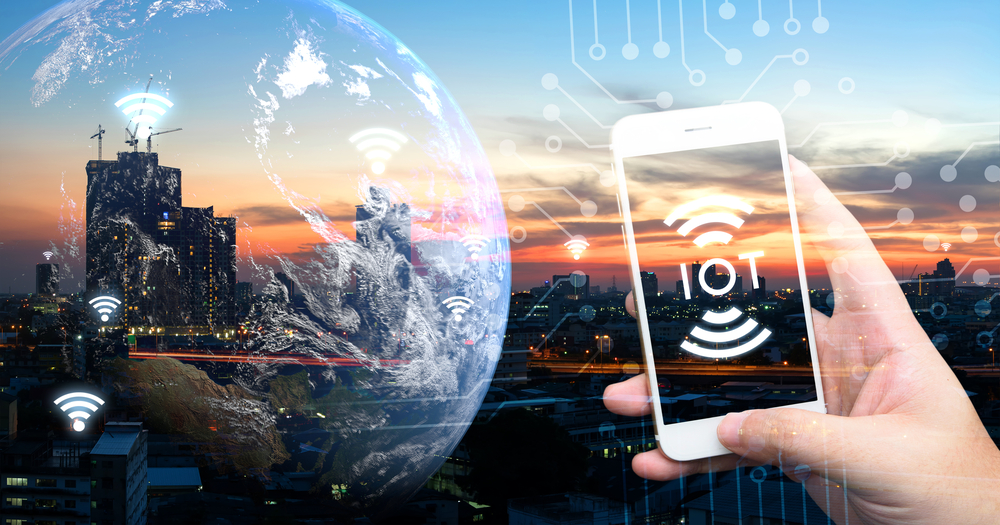IoT in the insurance industry – the gains and potential pains
The insurance industry started using IoT devices some time ago, dramatically changing the way the sector operates. According to Research and Markets’ IoT Insurance Market report, in 2021 the global IoT insurance market reached a value of $20.2 billion. By 2027 it is expected to reach $143.1 billion. An increasing number of insurers are piloting, testing, and deploying IoT initiatives, forever changing the landscape of the insurance business.
IoT opportunities in insurance
So how do insurers use IoT in their businesses and what results do they get? Here are some examples:
IoT as a source of information for pre-filling forms
For customers, completings forms and paperwork is one of the most tedious tasks when dealing with insurers. IoT allows for a more seamless experience by fetching existing data and securely auto-filling it, which decreases the time customers need to make a claim. Another huge benefit is pre-filling reduces human error in the data collected.
Chatbots
Chatbots are becoming increasingly popular in many industries. They allow customers to get in touch with service providers 24 hours a day and to receive a response to the questions they have, making communication between customers and businesses much more efficient – particularly when many common answers can be automated.
Automatic alerts
New IoT based systems such as alarms, gas and heat sensors or smart monitoring not only automatically alert insurance companies when damage happens, but also check the safety of the insured premises and help to prevent accidents.
Easy access to photos and documents
With the right IoT devices, very often there is no need to send insurers’ employees to assess the actual damage. Photos taken by UAVs (unmanned aerial vehicle) and data provided by sensors allow insurers to get an accurate idea of what the damage was and why it happened without making potentially risky site visits.
Customization of insurance practices
IoT insuretch generates a lot of data, and data that is properly gathered and analyzed means intelligence, allowing insurers to get information they need to make more accurate, customized risk-assessments. Two great examples are IoT car insurance and IoT home insurance, allowing insurers to get precise data on drivers (the way they drive, even the mood they are in) and homeowners (how they protect the property, how quickly they react to issues), allowing them to prepare personalized quotes and more comprehensive offers.
What’s more, data obtained using IoT devices allows insurance companies to better understand their customers and to create products that are personalized to their clients’ needs.
Smart cars
The increasing number of connected vehicles allow for better road safety. A great example is the auto-braking system used in connected cars for accident prevention.
IoT in insurance – benefits and challenges
The main benefits of using IoT in insurance include:
Better customer service, achieved thanks to pre-filled forms, chatbots, more personalized offers along with the possibility of tracking claims in real time. According to Forbes, 66.66% of a company’s competitive edge comes from its customer experience, making thisan area worth investing in.
Better risk assessment and prevention, thanks to automatic alerts which advise on when and why damage may happen.
Improved efficiency of operations, thanks to the use of drones that take pictures of damaged areas quickly and safely.
Savings, both in time and money when it comes to claim processing.
Increased safety:
- for employees, who don’t need to visit damaged and unsafe areas in person,
- for customers, who use smart alerts, smart cars and other connected IoT devices. The US-based Insurance Institute for Highway Safety estimates that by 2025 the standard auto brake system (AEB) may help prevent 28 000 crashes and 12 000 injuries in the US.
But a digital revolution in insurance sector also means some challenges insurers need to be aware of, such as:
Potential loss of business
If companies don’t develop new strategies to address customers’ needs and to enhance new technologies, they risk losing some or all of their business. What’s more, IoT devices have the potential of disrupting the very essence of insurance by advising customers even before a potential loss occurs. This leaves insurers with an important job of convincing their clients that protection is still of utmost importance.
Greater risk of data privacy and security issues
Data security is one of the crucial problems when it comes to the world of IoT. With so much sensitive data being produced every minute, IoT devices are an attractive target for cybercriminals who use the most innovative techniques to steal information and money. In order to prevent them from stealing data, insurers need to pay great attention to security, encryption and visibility by getting expert advice about cybersafety and appropriate software.
Resistance to change
The insurance industry is one of the most traditional, and it does not adapt to changes quickly or easily. There is therefore a risk that companies which don’t implement IoT technology might lose the race for new customers who always look for innovative solutions and better service. To address this issue, insurers need to realize the full potential offered by IoT insurtech and implement new technologies to benefit both their companies and clients.
IoT in insurance – conclusion
In the past the insurance sector has been slow to implement IoT solutions, but it is not so anymore. The benefits of using IoT are tangible and in the longer term will allow providers to deliver better service and improved operations. According to Forbes, IoT can benefit insurance companies by reducing the cost of the claims process by 30%, while IoT-enabled devices can decrease premiums by 25%. What’s more, increased customer satisfaction achieved thanks to IoT gives businesses a competitive edge – so crucial in today’s market.
Recent research states that as of 2021, 20% of the insurance companies have either piloted, tested, or deployed IoT initiatives. If you are keen to join them and dive into the digital revolution, do get in touch with us to speak about IoT solutions for insurance companies. At Eversoft we are experienced insurance software developers, ready to help you take your business to the next level. See how we helped insurance companies implement innovations.




